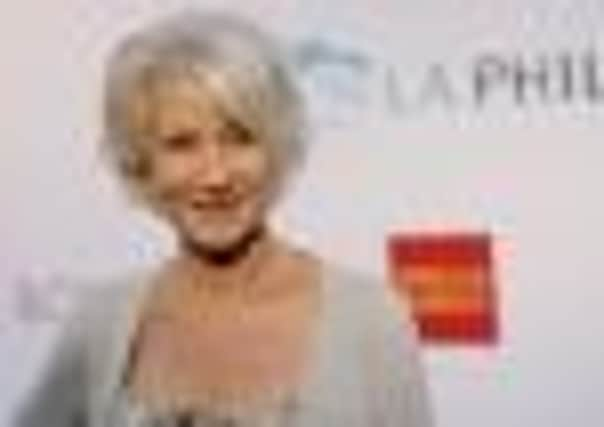Shine wears off for icons who become national treasures


BIG Ben, Stonehenge and the Crown Jewels, these are just some of the iconic objects that spring to mind when we think of our national treasures.
But they aren’t alone, people, too, are recognised as figures of national importance. William Shakespeare, Lord Nelson and Winston Churchill have all more than just whispered in the ear of greatness and their various achievements have ensured their names remain burned into our national psyche.
Advertisement
Hide AdAdvertisement
Hide AdToday, the phrase “national treasure” is used to describe a growing band of people from all walks of public life, although it seems not everyone is happy about it. In an interview this week, Oscar-winning actress Dame Judi Dench said she hates being called “a national treasure,” adding: “A national treasure is something that never changes and is sitting there behind glass.”
This may sound a little ungrateful given that it’s meant as a term of endearment and admiration, rather than a patronising pat on the head. Nevertheless, it’s obviously a source of irritation for the York-born star. Perhaps it’s a Yorkshire thing? If you asked either Alan Bennett or David Hockney what they thought of being considered a treasure I suspect they’d let you know exactly what they think in their own inimitable way.
Nevertheless, it seems we like the idea of having national treasures, but how do you become one and who deserves such lofty regard?
Is it down to a person’s winning personality, their achievements, or simply their longevity – the fact they haven’t popped their clogs?
Advertisement
Hide AdAdvertisement
Hide AdA few years ago, writer Jan Etherington described a national treasure as someone you “want to hug”.
She wrote: “They have huge likeability, which transcends their star status, success, age, class and intellectual barriers.
“Often, they need to have ‘come through’ some kind of test, to have overcome adversity and to have clawed their way back from the brink.
“And they need to pass the garden fence test. Is this someone who, I feel, would happily talk to me, over the garden fence?”
Advertisement
Hide AdAdvertisement
Hide AdIn a poll involving the British Library three years ago, the winners of the four categories – covering the arts, innovation, science and public life – were Dame Judi Dench, Sir Richard Branson, Sir David Attenborough and Lady Thatcher.
Mrs Thatcher would divide opinion but so, too, would another candidate for the role Tony Benn, the longest-serving Labour MP in history, who raised a few wry smiles when he resigned after 50 years in the House of Commons “to devote more time to politics”.
Then there’s the Duke of Edinburgh. Judging by the warmth of the public’s reaction to his 90th birthday this year he could be categorised as a national treasure. He’s certainly done his “bit” for the nation over the years.
What about the world of entertainment? Eric Morecambe and Tommy Cooper would surely fit the bill while of those plying their comic trade today Michael Palin and David Jason would get many people’s vote.
Advertisement
Hide AdAdvertisement
Hide AdMichael McIntyre is another person who appears well on the road to national sanctity unlike Ricky Gervais, star of The Office, who is probably seen as too controversial.
Although the phrase “national treasure” is banded around with increasing regularity some recipients are likely to raise a few eyebrows.
A few years ago, Q magazine suggested that John Lydon, aka Johnny Rotten, lead vocalist of The Sex Pistols had “somehow achieved the status of national treasure”, a view that probably isn’t shared by most of Middle England.
You’d be on safer ground talking about Jamie Oliver and Delia Smith, without who millions of Britons might still be unable to boil an egg let alone conjure up a perfect Victoria sponge.
Advertisement
Hide AdAdvertisement
Hide AdIt seems there is a thin line between being regarded as a national treasure and an eccentric, although Paul Taylor, a senior lecturer in communications theory at Leeds University, sees it as more inclusive than exclusive. “I think it includes people like Simon Cowell who’s allowed to get up people’s noses because you know what you are going to get from him.”
But he also thinks it can make some people immune from criticism. “Someone like Helen Mirren is seen as a glamorous older woman and while I think she is a brilliant actress if she did a bad performance I don’t think she’d get slated because she’s regarded as one of the ‘untouchables’, someone you aren’t allowed to criticise.”